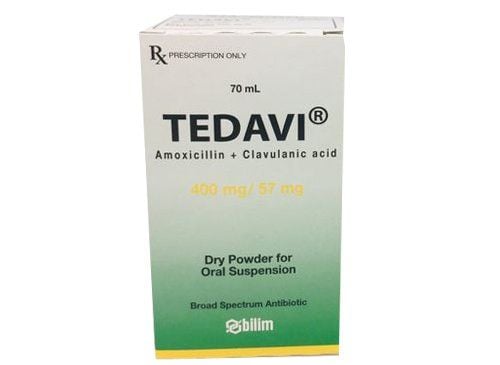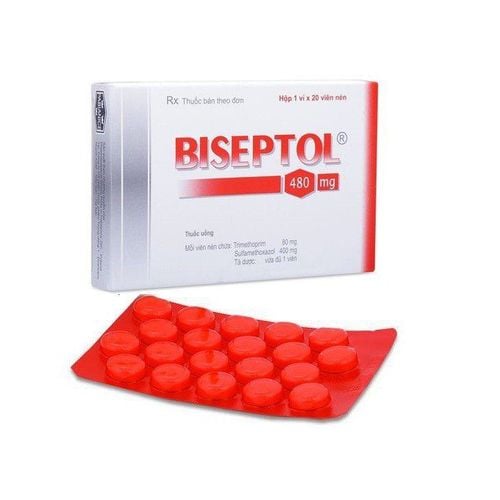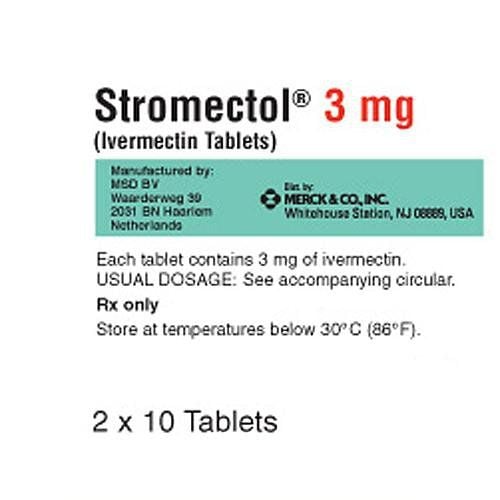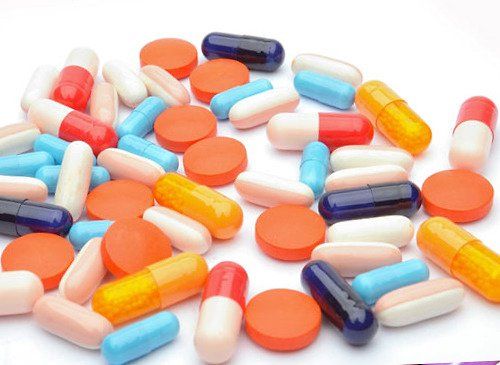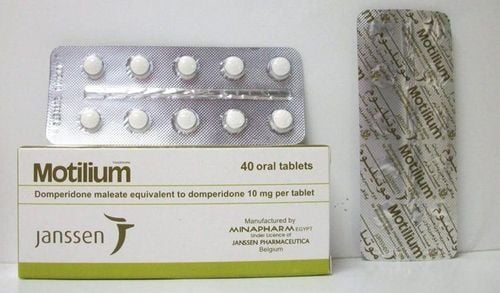This is an automatically translated article.
Posted by Master, Doctor Mai Vien Phuong - Gastrointestinal Endoscopy - Department of Medical Examination & Internal Medicine - Vinmec Central Park International General Hospital
After being poisoned with food, the body becomes very tired and loses strength, so to recover quickly as well as not affect the digestive system. You need to pay special attention to what foods to eat after being poisoned.
1. Things to note when food poisoning
Food poisoning usually occurs when pathogens contaminate food or drinking water. Currently, food poisoning is a relatively common occurrence.
After food poisoning let your stomach settle down. When you experience food poisoning symptoms such as vomiting, diarrhea and abdominal pain experts recommend letting your stomach rest. That means avoiding eating and drinking altogether for a few hours.
1.1 Stay hydrated with food poisoning Fluid intake is important to help the body fight the effects of food poisoning. Vomiting and diarrhea can cause dehydration, so sucking on crushed ice or taking small sips of water is a good start.
Sports drinks containing electrolytes are the way to prevent dehydration during this time. Other suggested liquids include:
Noncaffeinated soft drinks, such as Sprite, 7UP or ginger beer Decaffeinated tea Chicken or vegetable broth Eat foods that are gentle on the stomach
When you feel able to fast, eat foods that are gentle on the stomach and digestive tract. You should eat bland, low-fat, low-fiber foods. Because fat makes it harder for the stomach to digest, especially when you're upset. Stomach-soothing foods include:
Banana Cereals Egg whites Honey Porridge Oatmeal Peanut butter Regular potatoes, including mashed potatoes Rice Salt water Toast Apple sauce

1.2 Try Natural Remedies During a phase of food poisoning, it is important that your body follows its natural response to cleanse and purify the digestive tract to eliminate harmful bacteria. That's why over-the-counter (OTC) diarrhea medications are not a good way to treat food poisoning.
While your symptoms are at their peak, you can try drinking ginger tea, as ginger is known to soothe the stomach. Once you feel healthy again, you may want to replace your normal gut flora with natural yogurt or probiotic capsules for at least 2 weeks.
This will help your body regenerate the healthy bacteria lost during the food poisoning clearance process and get your digestive and immune systems back.
1.3 Other food poisoning tips When you have food poisoning delay brushing your teeth for at least an hour. Because stomach acid is expelled when vomiting can damage your enamel, and brushing your teeth right after vomiting can further erode enamel. Instead, gargle with a mixture of water and baking soda.
Showering is also a way to help clean the body from harmful bacteria. You should also get plenty of rest. Getting enough rest can help you feel better faster.
2. What foods and drinks should be avoided when being poisoned?
Your priority is to avoid the foods that make you sick in the first place. Immediately throw the suspected culprit in the trash and cover it so that contaminated food is out of your pet's reach. Avoid foods, drinks and substances that upset the stomach, such as:
Alcohol Caffeine such as soda, energy drinks or coffee Spicy foods High fiber foods Dairy products High foods fats Fried foods Fruit juices Also, be sure to avoid any over-the-counter diarrhea medications. Follow these simple tips and you'll feel better in no time.
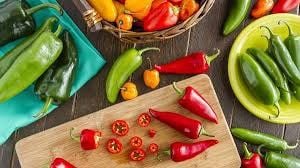
3. What causes food poisoning?
Five pathogens are responsible for most foodborne illnesses in the United States. These pathogens include:
norovirus commonly found in oysters, fruits and vegetables Salmonella commonly found in eggs, meat and dairy products Clostridium perfringens found in meat and poultry Campylobacter found in cooked meat Unripe and water contaminated with Staphylococcus found in animal products such as ice cream, eggs and milk Salmonella and norovirus are responsible for most food poisoning hospitalizations. However, hospitalization for food poisoning can also be caused by the following:
Bacteria Parasites Toxins Contaminants Allergens Undercooked meat and improperly prepared products are common causes of food poisoning. common cause of food poisoning. Wash hands, utensils and plates between raw and cooked stages. Stomach upset, vomiting, and diarrhea are the most common symptoms of food poisoning. They usually subside after 48 hours. If you have a history of dehydration, heart disease, embolism or other serious health problems, seek help and drink plenty of fluids.
Severe symptoms of food poisoning include blood in your stools, severe stomach cramps, blurred vision, and diarrhea that last more than 3 days. These are all indications for seeking medical attention.
4. Who is at higher risk of food poisoning complications?
4.1 Infants and Children Food poisoning is as common in children as it is in adults and it can be a cause for concern. Children, especially children under the age of 1, are very susceptible to poisoning. Botulism is rare, but if not detected early, it can lead to paralysis and even death.
Children are also at risk for a serious reaction to E. coli . Any infant or child who develops symptoms of food poisoning should be seen by a medical professional to rule out poisoning and dehydration. Children are more susceptible to dehydration than adults and need to be monitored closely.
4.2 Pregnant Women Pregnant women should treat any case of food poisoning with caution. Food poisoning caused by Listeria bacteria has been shown to harm the developing fetus.
Proper nutrition in pregnant women is essential to help the fetus develop. For this reason, any signs of food poisoning should be brought to the attention of a medical professional.

4.3 Elderly Older adults are also more susceptible to complications from food poisoning. In particular, some strains of E. coli can lead to bleeding and kidney failure. If adults over age 60 have symptoms of food poisoning, they should contact their primary care physician for advice.
4.4 People with chronic illnesses People with chronic illnesses such as HIV, liver disease or diabetes are at increased risk for more serious complications of food poisoning. People who receive treatments that suppress the immune response, such as chemotherapy, are also at higher risk.
5. When to see a doctor?
Symptoms of food poisoning usually do not last more than 48 hours. If it's been 2 days since symptoms first appeared, it's time to call a medical professional.
Remember that serious symptoms, such as bloody stools, dizziness, muscle weakness and severe abdominal pain should be taken seriously. Don't wait for those symptoms to subside before seeing your doctor.
Besides, to avoid food poisoning, you should eat cooked and drink boiling, should choose fresh, new foods of clear origin. Pay attention to choose restaurants that ensure good hygiene and have a clean space when eating out.
Currently, the Department of Gastroenterology - Vinmec International General Hospital is proficient in gastrointestinal endoscopic techniques for diagnosis, emergency intervention and timely treatment of food poisoning cases. The examination at the hospital is always performed by a team of qualified doctors with many years of experience in the profession.
All medical examination, consultation and treatment services are always comprehensive and meet international standards. Therefore, customers when choosing to visit here can be completely assured.
Please dial HOTLINE for more information or register for an appointment HERE. Download MyVinmec app to make appointments faster and to manage your bookings easily.
References
Foodborne germs and illnesses. (2019). Lete I, et al. (2016). The effectiveness of ginger in the prevention of nausea and vomiting during pregnancy and chemotherapy. DOI: Mayo Clinic Staff. (2017). Food poisoning. What you need to know about foodborne illnesses. (2018).






